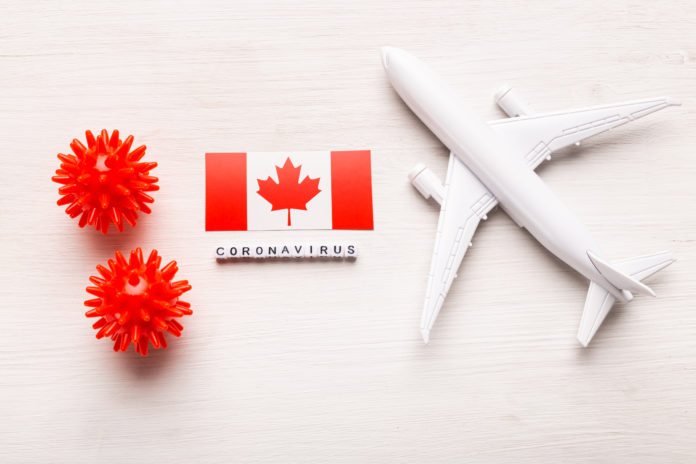
Air travellers landing in Canada will be required to quarantine in a hotel at their expense from February 22, Prime Minister Justin Trudeau has announced.
The strict measure, first announce in January, means those arriving on flights will be required to take a COVID-19 test on arrival, then stay in a government-approved hotel for three nights at their own cost while they await the results.
The cost of the stay has previously been put at $2,000, including food, cleaning and security.
After those three days, travellers to Canada are still required to complete a mandatory 14-day quarantine. Ottawa is working with four security companies, G4S Secure Solutions (Canada), Garda Canada Security Corporation, Paladin Risk Solutions, and the Canadian Corps of Commissionaires, to ensure travellers respect those quarantine orders.
Mandatory Negative COVID-19 Tests At Land Borders
Trudeau announced earlier this week that anyone coming into Canada through a land border will be required to show a negative COVID-19 test or face a fine.
“As of Feb. 15, when you return to Canada through a land border, you’ll need to show a 72-hour PCR test, just like for air travel,” said Trudeau.
A PCR – or polymerase chain reaction – test detects genetic material from a specific organism, like the coronavirus that causes COVID-19, if the person is infected at the time of the test or has been previously infected.
The test is typically done by getting a swab from inside the nasal cavity and having it analysed in a medical lab. The results are usually available after about a day.
Read More
Canada Immigration Drops In December, Down Nearly Half In 2020 As COVID-19 Limits Newcomers
New Mandatory Negative COVID-19 Tests At Canada’s Land Borders
Immigration Minister Mendicino Says Canada Moving Towards Fully Online Immigration Process
Border control agents in Canada do not have the authority to arrest or prevent any Canadian who fails to produce such a PCR test from entering the country. But anyone who fails to do so can be fined up to $3,000.
“These are public health measures that are necessary to ensure that we are keeping Canadians safe, particularly given the arrival of new variants in Canada and extensively around the world,” said Trudeau. “We need to do everything we can to keep people safe.”
Failure to Quarantine Can Come With Six Months Jail Sentence
Under the Quarantine Act, violating the quarantine is punishable by up to six months in prison and/or $750,000 in fines.
Last month, the Canadian government also extended its restrictions on non-U.S. international travel to Canada for another month, until Feb. 21.
“Our government will never hesitate to take the strong action needed to keep Canadians safe from COVID-19 while maintaining essential trade with our international partners,” tweeted Public Safety and Emergency Preparedness Minister Bill Blair.
“With some of the strictest travel restrictions in the world, we’ve taken strong action at our borders to fight COVID-19 with enhanced screening measures and pre-arrival testing for anyone entering our land or air borders, and a mandatory 14-day quarantine for non-essential travellers,” tweeted Blair.
Exemptions In Place For Essential Travel
The extension means restrictions have been in place for 11 months as countries all over the world, including Canada, battle a second wave of the COVID-19 pandemic.
Citizens and permanent residents, plus their immediate and extended family members, are exempt from travel restrictions.
Canada has exemptions in place for the following people, provided they are travelling for a non-discretionary reason:
- Seasonal agricultural workers, fish/seafood workers, caregivers and all other temporary foreign workers;
- International students who held a valid study permit, or had been approved for a study permit, when the travel restrictions took effect on March 18, 2020. More international students are now allowed to travel from October 20 last year under a new exemption;
- Permanent resident applicants who had been approved for permanent residence before the travel restrictions were announced but who had not yet travelled to Canada;
- Immediate family members of Canadian citizens and permanent residents are also exempt if entering to be with an immediate family member for at least 15 days, and;
- Extended family members of citizens and permanent residents, plus foreign nationals travelling on compassionate grounds.
Canada Immigration numbers were low last year as travel restrictions dramatically impacted permanent resident arrivals.

